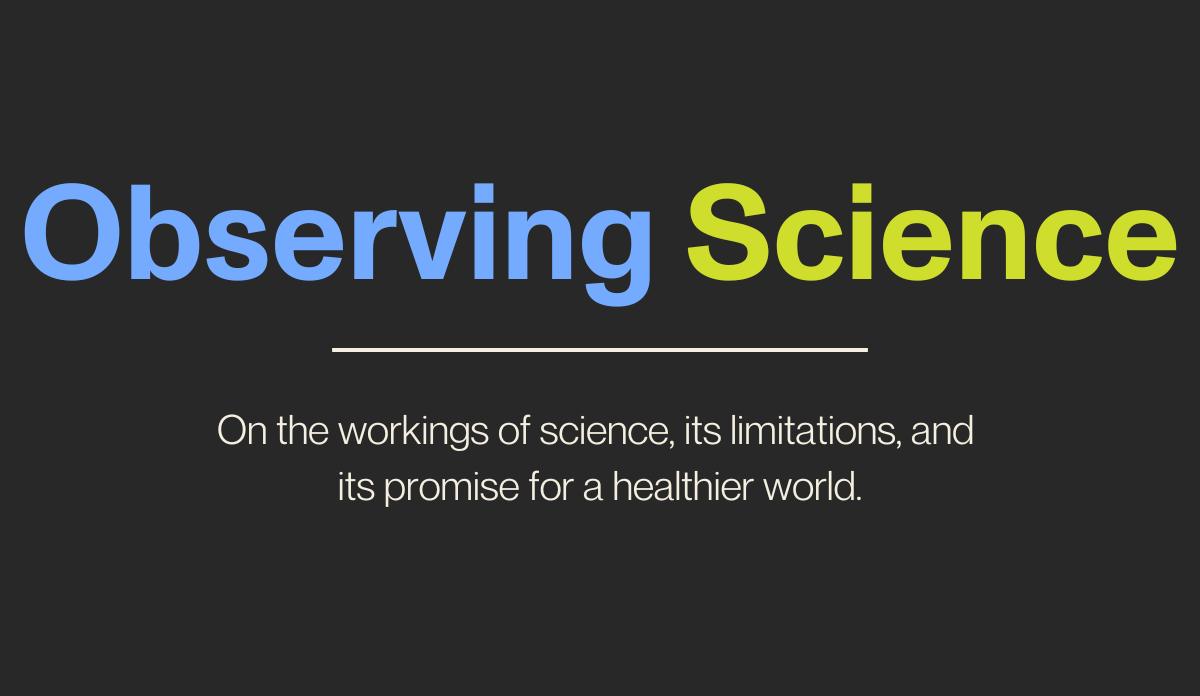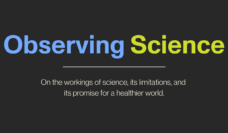Einstein joked that “to punish me for my contempt for authority, Fate made me an authority myself.” His contempt was achieved honestly: he knew that his originality was based on doubting authority, by asking questions that challenge accepted answers. By becoming an authority himself, he had become someone who should be doubted, rather than a scientist whose role is to doubt. This is, in many ways, a fundamental challenge facing science: how to keep acquiring knowledge and wisdom through hard-won skepticism while also becoming experts who society turns to for certainty.
Science is inherently undemocratic. Every field identifies leaders who do the most original work, or the most work, or who translate an overview of the field’s work most clearly, whose work stands on its own merit, judged by peers. These scientists then become experts, authorities. Sometimes these scientists assume administrative authority—directing an institute, adjudicating disputes between staff, determining the allocation of funds. When they take on these roles, they often promulgate ideas that can be codified, serve as directives, govern the delivery of services, or determine payments, augmenting their authority.
Perhaps more influential yet are those who are given scientific authority, who become arbiters of what will be believed or disbelieved, what questions are important, which studies will be disseminated. Authorities are convincing particularly in those gray areas where evidence is inadequate, which is most cases. Authorities can determine which topics are even chosen for appraisal or are even worthy of opinions.
But, as Einstein correctly noted, this authority is paradoxically at odds with the role of science itself. Science is fundamentally anti-authoritarian, doubting. Galileo is the paradigmatic historical figure of scientific doubt. The Church had been the authority for centuries, offering a solution to every existential problem. Galileo challenged the Church’s authority. He showed that we should disregard authority whenever the observations disagree with it, setting an example for how science should always operate—putting data above ideology, challenging established authority when the facts suggest otherwise.
We have more recent examples of science dramatically challenging authority. At a Presidential commission hearing, physicist Richard Feynman famously dropped a piece of O-ring into a glass of ice water and watched the rubber sealing turn dangerously brittle, suggesting a cause for the Challenger space shuttle crash on a very cold day. NASA authorities had denied this possibility, but Feynman showed that data can—and should—challenge authority.
Barry Marshall found that Helicobacter pylori invading the wall of the stomach could explain many of the symptoms attributed to other causes identified by gastric researchers for a century. Doubting that the cause of peptic ulcer was already fully known, the hypothesis that peptic ulcer might be caused by a previously unknown bacterium took 14 years to become widely acknowledged. In his 2005 Nobel Prize acceptance speech, winner Marshall quoted historian Daniel Boorstin, “The greatest obstacle to knowledge is not ignorance; it is the illusion of knowledge.”
To remain an authority, one must develop a comfort with regular challenges to that very authority. This requires a humility that allows that we often do not know what we do not know. While at face value this may seem at odds with authority, we suggest that admitting to not knowing is not the same as ignorance; perceiving what remains unknown always rests on a solid foundation of knowledge. And that may be the truest certification of authority. A scientific authority must always believe that they are never quite up to date. That knowledge of even a small field of study is necessarily incomplete. That what we produce and understand is more likely to be temporary, imperfect, and subject to revision than not. As scientists, we write, we try to improve our understanding, but we know there is always another experiment that can change everything we know. And that our authority is always fleeting. And this is how it should be.
Previous Issue: Diversifying Science
In Next Week’s Issue: Dead Scientists and Innovation
Sign up for Observing Science
A weekly newsletter on science and creating a healthier world













